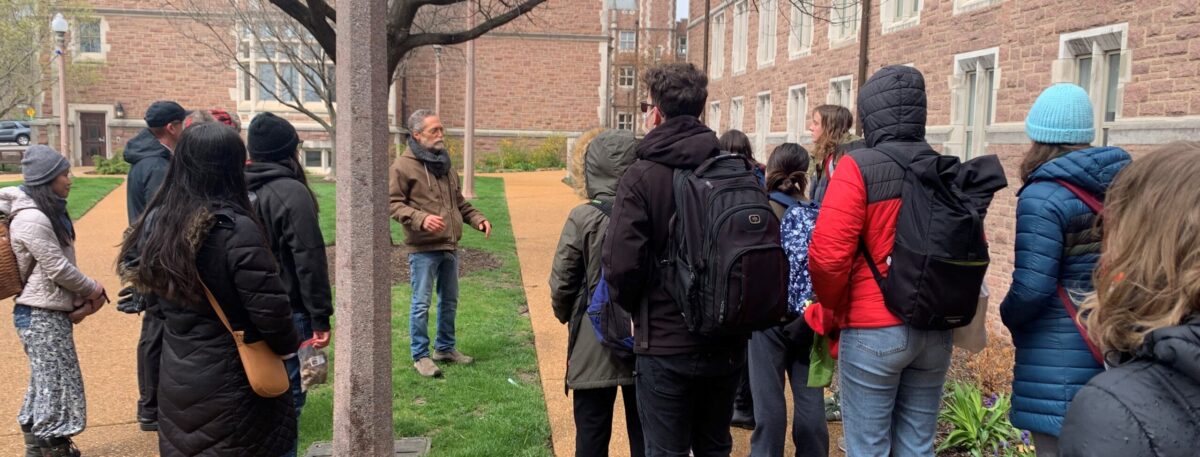Executive Chef and Professor Team up for Campus Foraging Tour at Washington University in St. Louis
- by Peter Todaro

Photo credit: WashU Sustainability Coordinator Aamna Anwer
Professor Stan Braude’s research has taken him far afield.
He’s studied the evolution of social behavior and senescence in East African naked mole-rats, the burrowing behaviors of tuco-tucos of Patagonia, and landmine detection by giant pouch rats in Tanzania. But this Earth Week, Professor Braude was focused on another of his passions that just so happens to be much closer to home – native, edible plants!
As part of Washington University in St. Louis’ Earth Week celebration, Professor Braude and Bon Appétit Executive Chef Patrick McElroy, who leads WUSTL Dining’s culinary team, teamed up to lead a foraging workshop and edible campus tour.
Attended by over 20 students, faculty, and staff, the tour began on WashU’s Brookings Quad, and meandered across campus, with Professor Braude identifying edible flowering trees like redbud, whitebud, magnolia and linden. Unassuming sprouts, like lambs quarter, dandelion, wood sorrel, and chicory were shown by Professor Braude to not only be edible, but delicious, too. Braving cold spring winds and even a snow flurry, the group traipsed up and down WashU’s landscaped beds, collecting ingredients for a foraged spring salad.
Newly laden with bags of foraged flowers and greens, the tour concluded at the Burning Kumquat, WashU’s storied campus farm, where the group assembled to watch Patrick whip together a culinary masterpiece from the unassuming ingredients they had collected.
A week prior to the tour, Professor Braude dropped off magnolia blossoms at the WUSTL Dining kitchens, which Patrick submerged in a simple brine. At the garden, Patrick unveiled the pickled showy pink and white flowers, which had turned the vinegar solution a beautiful purple color. Patrick also brought along an acorn flour bread he and the WUSTL Dining team had made for the group. He assembled a bright, colorful salad, using the pickling solution from the magnolia blossoms as well as olive oil, the only non-foraged ingredient in the salad, to make a deliciously tart dressing.
Beyond being a fun outdoor activity, the tour had a big impact on the students, faculty, and staff who attended. “It was amazing for people to connect their everyday lived experience with their food, Sustainability Coordinator Aamna Anwer explains, “which so many of us are disconnected from.”
The group enjoyed their salad and acorn bread and drifted back to their dorms, offices, and classrooms, never to look at a linden bud or dandelion leaf the same way again.